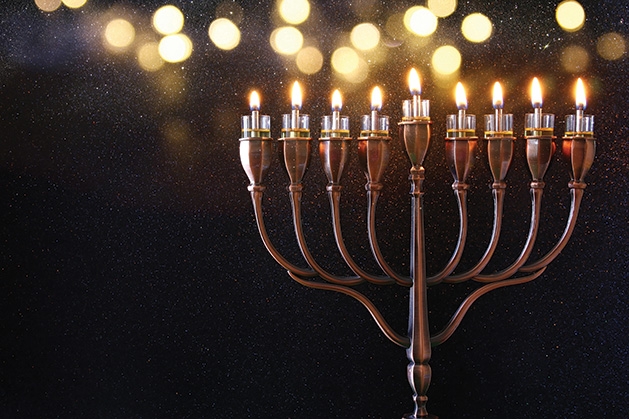
Hanukkah commemorates a rededication of the second temple in Jerusalem in the second century B.C. According to Jewish history, there was only enough oil to light a multi-branched candelabra, called a menorah, for one day, but a miracle kept it lit for eight nights. Now, during each night of this eight-day celebration, followers enjoy goodies such as jelly-filled donuts and potato pancakes and also light a menorah in remembrance of the miracle.
Although the holiday honors the temple, it’s traditionally a home-based celebration. “It is really beautiful because it signifies that our homes are miniature versions of the temple,” Rabbi Alexander Davis of Beth El Synagogue in St. Louis Park says. “They are what solidify our relationship with God.”
Even though Hanukkah is a holiday that many in the Jewish tradition prefer not to overemphasize, it has inevitably become more prominent due to its proximity to Christmas. Given this, Davis believes that the recent exposure of Hanukkah addresses the need for everyone to acknowledge all cultural traditions over the season.
“I would hope that by becoming culturally sensitive to all of the variety of holidays in a wonderfully diverse nation that we can begin ourselves to bring light to a world that is really full of darkness,” Davis says.
Davis suggests that people should give in to their curiosity of other cultures as many are happy to share about their traditions. Specifically pertaining to Jewish followers, he advises others to say or purchase cards that illustrate the words “Happy Hanukkah” to make holiday greetings more personable and inclusive.
“It is not easy being a minority, especially around Hanukkah when our country kicks into holiday or Christmas mode,” Davis says. “Hanukkah is about renewal. It is about miracles. In a way for Christians, some of those themes of miracles and hope are similar.”









